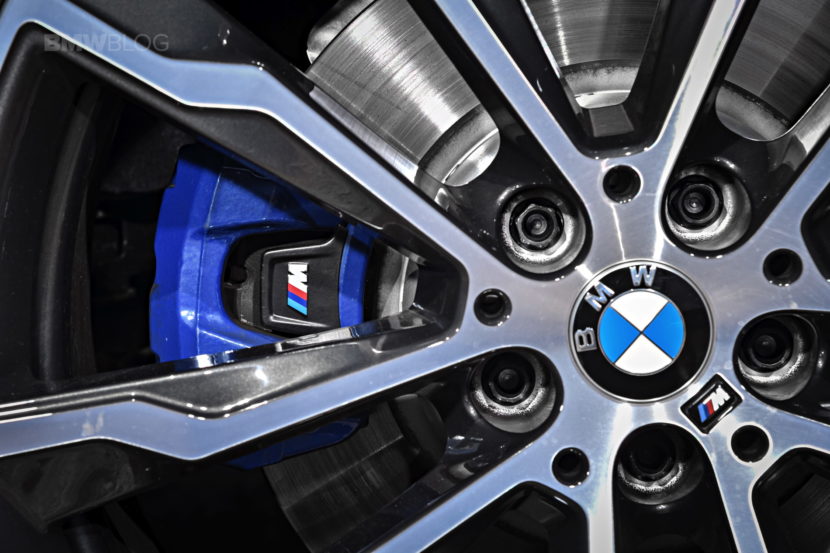BMW’s Brake Recall In 2025: A Deep Dive Into The Issue And Its Impact

BMW’s Brake Recall in 2025: A Deep Dive into the Issue and Its Impact
The automotive industry is no stranger to recalls, with safety issues often leading to manufacturers issuing corrective actions for affected vehicles. In 2025, BMW found itself at the center of a significant recall, impacting thousands of its vehicles globally. This article delves into the details of the recall, exploring the technical issues, the impact on owners, and the steps BMW took to address the situation.
The Genesis of the Recall: A Faulty Brake Booster System
The 2025 BMW recall stemmed from a defect in the brake booster system, a critical component responsible for amplifying the driver’s braking force. The issue was traced back to a faulty batch of hydraulic pressure sensors manufactured by a third-party supplier. These sensors, responsible for accurately measuring the pressure within the brake system, exhibited a tendency to malfunction, leading to a loss of braking assistance.
Symptoms and Severity: A Range of Concerns
The malfunctioning brake boosters presented a range of symptoms, from subtle anomalies to potentially dangerous situations. Some drivers reported a noticeable increase in pedal effort, requiring more force to bring the vehicle to a stop. Others experienced a complete loss of braking assistance, leaving them with only the mechanical brakes, which require significantly more force to operate. The severity of the issue varied depending on the specific malfunction of the sensor, with some vehicles experiencing intermittent problems while others faced a complete failure.
The Scope of the Recall: A Global Effort
BMW’s 2025 brake recall spanned a wide range of models, including popular vehicles like the 3 Series, 5 Series, X3, and X5. The recall affected vehicles manufactured between 2023 and 2025, encompassing a significant portion of BMW’s production during that period. The recall was issued globally, impacting owners in North America, Europe, Asia, and other regions.
BMW’s Response: A Multi-Pronged Approach
Following the identification of the faulty brake boosters, BMW swiftly initiated a comprehensive recall program. The company notified affected owners via mail, email, and online platforms, urging them to bring their vehicles to authorized dealerships for inspection and repair. The recall process involved replacing the faulty hydraulic pressure sensors with new, revised components. In addition to the sensor replacement, BMW also provided software updates for the vehicle’s electronic control units (ECUs) to optimize the brake system’s performance and ensure proper communication between the sensors and the braking system.
Impact on Owners: Disruption and Anxiety
The recall naturally caused significant disruption for affected owners. Many drivers faced delays in securing appointments at dealerships, leading to inconvenience and potential safety concerns. The lack of braking assistance, even if intermittent, instilled anxiety and fear in some drivers, particularly those who frequently drive in heavy traffic or challenging conditions. The recall also prompted a wave of negative publicity for BMW, raising questions about the company’s quality control and safety standards.
Beyond the Recall: Lessons Learned and Future Implications
The 2025 BMW brake recall highlighted the importance of robust quality control measures and thorough testing throughout the automotive manufacturing process. It also underscored the critical role of supplier oversight in ensuring the reliability of critical components. The recall served as a valuable learning experience for BMW, prompting the company to implement stricter quality control protocols and strengthen its partnerships with suppliers.
Looking Ahead: A Focus on Safety and Transparency
The 2025 BMW brake recall serves as a stark reminder of the potential for safety issues in even the most technologically advanced vehicles. Moving forward, the automotive industry must continue to prioritize safety and transparency, proactively addressing potential concerns and communicating effectively with consumers. This includes implementing stringent testing procedures, fostering open communication with suppliers, and actively engaging with customers during recall processes.
The Importance of Owner Action: Staying Informed and Safe
For vehicle owners, the 2025 BMW brake recall underscores the importance of staying informed about safety notices and recalls. Owners should diligently check their mail, email, and online accounts for any communication from their vehicle manufacturer. When notified of a recall, it’s crucial to schedule an appointment with an authorized dealer as soon as possible to have the necessary repairs performed. Taking these steps can help ensure the safety of drivers, passengers, and other road users.
Conclusion: A Test of Strength and a Call to Action
The 2025 BMW brake recall was a significant event that tested the company’s resilience and its commitment to customer safety. While the recall undoubtedly caused inconvenience and anxiety for affected owners, it also provided a valuable opportunity for BMW to improve its processes and reaffirm its dedication to quality and reliability. As the automotive industry continues to evolve, it’s essential for manufacturers to learn from past experiences and prioritize safety in all aspects of vehicle design, production, and maintenance. This includes maintaining open communication with customers, proactively addressing potential issues, and working tirelessly to ensure the safety and satisfaction of all road users.







